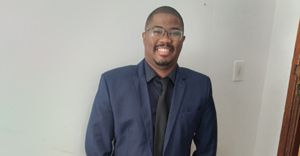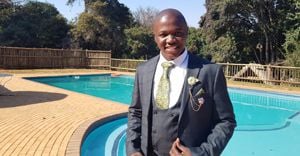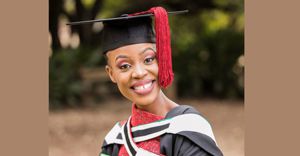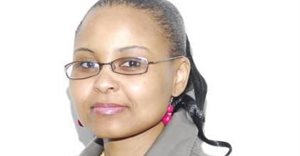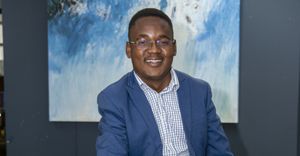
Subscribe & Follow
Former bursary students hits a six and lands top job at WPCA
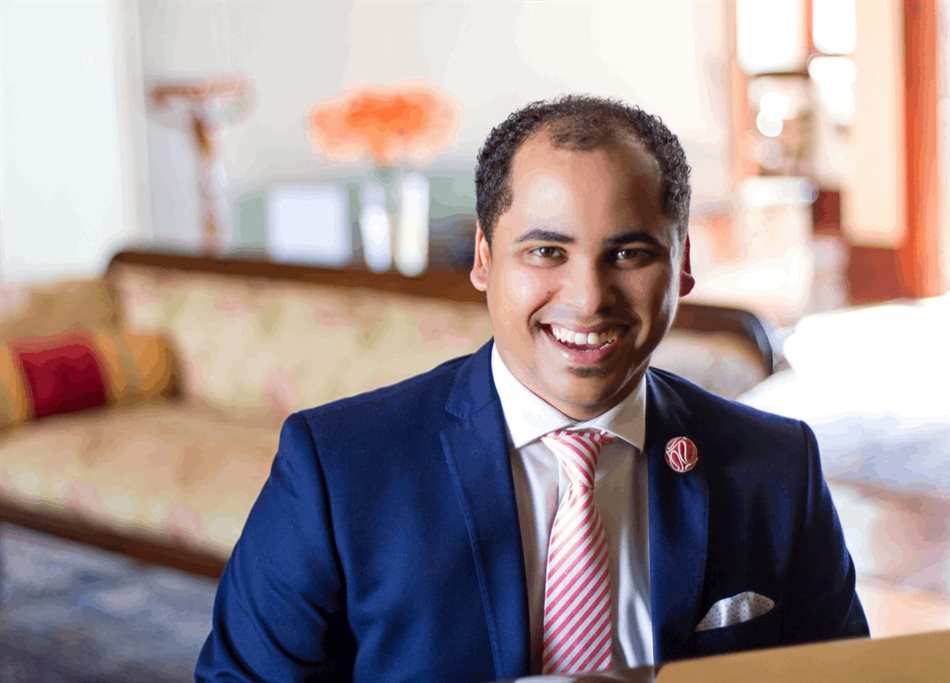
Born in East London, Botes says he was always surrounded by academics and sport fanatics. His father, a pastor, was the residence head of the then Bellville Teachers College, which is now known as the Western Cape College of Education. “As a kid, this exposed me largely to a religious and student life, because I was always amongst students and interacting with people who played sport. I had access to a big cricket and rugby field as well as an athletics track to explore and be active. My mother was also a teacher. Essentially, education played a big role in my childhood as well.”
He says that given that background, he probably would have become a cricketer. However, it was the great sense of purpose and meaning he acquired from meeting qualified chartered accountants [CAs(SA)] while in high school that shed light into why Botes decided to pursue the CA(SA) route instead. “They were always resourceful and I was inspired by how well educated they came across. The CA(SA) designation has an impact. For me, as a religious person, I wanted to become a CA(SA) to use the designation for God’s glory. I also saw it as a stepping stone to give back and be that motivation to my community. The greater sense for me is that there was a bigger purpose.”
The university journey
After matriculating from Paarl Boys’ High School in 2006, Botes took a gap year and travelled through England in 2007 where he coached and played cricket at Oundle Town School and Cricket Club. It was during this time that his father came across the South African Institute for Chartered Accountants’ (Saica) Thuthuka Bursary. “While I was in England my dad told me about the Thuthuka Bursary Fund. He sent me application forms to complete along with my profile and then we submitted to Saica. I always knew that I had to study when I returned to South Africa.”
He vividly recalls the first time he set foot at Stellenbosch University with his father to enrol for his BCom Accounting undergraduate programme. “The gentleman assisting us with enrolment at the time looked at my application form and said to me I might want to also tick off the BCom General field, because not everybody makes it into the Bachelor of Accounting programme. That was, in hindsight, my biggest motivation that day.”
When Botes’s application was accepted, his parents accompanied him to the induction day. “They took us into the hall and the same gentleman that I met during my enrollment said to us ‘look left and look right, only one of you will make it into the Bachelor of Accounting Honours class at the end of your studies at Stellenbosch’.”
It was his competitive mindset that ensured these odds didn’t deter him. He was encouraged by the fact that he had a family of other Thuthuka students with him on the journey. “Saica and Thuthuka took a risk on me. Everything they knew about me was on paper and based on the profile I had submitted. I wondered how an organisation invests such a lot of money and not being certain of their return on investment. That inspired me and kept me going.”
At the end of his first year in 2008, Botes was awarded a ‘Golden Key Award’ in recognition for his excellent academic performance – being amongst the top 15% of students in his stream of study at the university at the time. Part of the Thuthuka conditions is that he had to be a student resident on campus, which resulted in him becoming an academic mentor at Metanoia Residence in 2009 and 2010. “I saw this as giving back, because I believed that someone else must also succeed in this process.”
Botes passed his undergraduate studies as well as his honours degree for the first time. However, he says it wasn’t all rosy as there were some challenges he had to learn to overcome. “Receiving lectures in Afrikaans at Stellenbosch University was not easy. The textbook became my greatest guide as well as the relationships built with fellow students to help each other understand lessons every day. I knew I had to go the extra mile and ensure that I caught up by the end of the day.”
As an introvert at first, he found having more than 270 people in an Honours degree class daunting. However, he understood that the only way to survive was to make it something greater than himself. “If one’s purpose and that which you want to achieve is going to be outside of who you are and what you can achieve, then that drives you to work towards the goals that you have,” he adds.
Transition from university to work life
After he completed his undergraduate programme in 2012, Botes was placed at the Auditor-General South Africa (Agsa) office in the Western Cape for his training contract where he served as a trainee auditor. “Going into the corporate world, especially the public sector, was a bit daunting. You find that you have thoroughly studied the Companies Act and not the likes of the Public Finance Management Act (PFMA). You therefore have to decide to either be pessimistic, optimistic or change your sails. I found myself needing to adjust.”
He says at first he did not have a clue about what the Agsa office was all about, but he found this to be a blessing in disguise. “It was an amazing experience as it enabled me to make a difference into the organisation – the entities and structures – that actually play a role in the lives of the needy (local municipalities).”
He says his experience at Agsa gave him a sense of purpose of how he could add value. In 2015, he was appointed an assistant audit manager. However, it was not a walk in the park. “I had the constant feeling of wanting to make a difference, but the challenge was where the system found itself. All we could do in an audit finding ways to say we recommend that something happens. However, you find yourself coming in year-in and year-out, and the same thing repeating itself. Although it became frustrating in some instances, I always had this feeling of making a difference before it was too late.”
It was in August 2016 when Botes decided to end his journey with the Agsa and pursue an audit of his personal life. He decided to take a three-month break to spend some quality time with his family and in the process got engaged to his wife, Tania. Today, they are the proud parents of their 16-month-old daughter, Grace Zoë.
In January 2017, Botes joined the WPCA as its finance manager and just after three years, he was appointed interim CEO of the WPCA at the end of April 2020. The game of cricket has always been an intimate part of his life. He has been a representative player on various levels throughout his career. Joining the WPCA was like a reunion. “It is an amazing full circle role. It puts a lot of things into perspective. For example, when I was playing mini cricket as a young boy I never understood what happens at an administrative level when Cricket South Africa allocates funding to the provincial level to execute their duties. The funding that we receive is not always adequate enough to see to the extent of our needs. The challenge is what are we from our side as an association going to do to see how we can contribute to our mandate.”
The WPCA manages a total of 116 high schools, 68 clubs, 423 club teams consisting of 5,361 male players and 425 female players. With the KFC Mini Cricket, the WPCA works with 243 primary schools and 11,074 players consisting of 443 teams. “For an association to be able to manage the structure and layout isn’t easy. For me, the underlying thing is a sense of giving back. My philosophy is that when you lead, be sure to leave leadership imprints that are deep enough, so that when it rains those who follow in your paths can quench their thirst and that’s what Thuthuka did for me. Therefore, being a leader of the Western Province Cricket Association is all my way of giving back to communities.”
With Botes as part of the team, the WPCA reached greater heights. The association was rated second overall on the Cricket SA scorecard and has been leading in the hubs programme. “If we reflect on players who made it onto the Proteas test and one day international teams and the South African A-team, there were a number of Cape Cobras young players. We are proud of that.”
He admits though that from a provincial point of view, it is tough in the cricket sector. “It isn’t the easiest place to find yourself. Income retention and growth is a challenge in our current economic environment. Being innovative and ensuring that we spend time seeking solutions instead of focusing on our challenges, is key. Therefore, you always have to ensure that you surround yourself with people who can walk this journey with you.”
Encouragement to current Thuthuka students
To current Thuthuka students who are in the pipeline of studying towards qualifying as CAs(SA), Botes encourages them to live by this quote of John Maxwell: “The pessimist complains about the wind, the optimist expects it to change and the leader adjusts the sails.”
“Students pursuing this designation can tell you what that wind means. For example, those who studied at Stellenbosch University will know the term ’Brek week’ (a term for when you write examinations on all your modules in one week). The pursuing must be of a greater cause, becoming selfless and not delving into the status of being qualified, but realising that the opportunities and influence that one will have to make a difference in someone else’s life,” Botes adds.
He urges prospective CAs(SA) to look at the bigger picture when they are qualified and always be surrounded by like-minded people pursuing the same goals. “It’s not supposed to be easy, because if it was easy it would have been for everyone. Nothing is impossible! In life I’ve come to appreciate the off-roads and difficult terrains, because they lead to the beautiful resorts and mountain views.”
Looking ahead, Botes hopes to form a leadership academy amongst other things to empower and develop other young people just like the Thuthuka programme empowered him to qualify as a CA(SA). This befits a philosophy that is in line with the South African proverb “izandla ziyagezana”, meaning “hands wash each other”.
Saica, its Thuthuka entities and the accountancy profession at large can be proud to have developed a CA(SA) who lives by the philosophies of its initiatives; ‘to develop’ others as he rises, but most importantly demonstrate that the accountancy profession is truly of national value.
About Saica
Saica, South Africa’s pre-eminent accountancy body, is widely recognised as one of the world’s leading accounting institutes. The institute provides a wide range of support services to more than 46,000 members and associates who are chartered accountants [CAs(SA)], as well as associate general accountants (AGAs(SA)) and accounting technicians (ATs(SA)), who hold positions as CEOs, MDs, board directors, business owners, chief financial officers, auditors and leaders in every sphere of commerce and industry, and who play a significant role in the nation’s highly dynamic business sector and economic development.
About Saica’s transformation initiatives (also known as Thuthuka):
One of Saica’s prime goals is to contribute towards strengthening the country’s economy by playing a significant and leading role in transformation and skills development. Through Thuthuka, a pioneering initiative to promote transformation in the profession, Saica launched its transformation efforts in the Eastern Cape in 2002 and has grown this into a national project that includes various interventions across the education value chain as well as the highly successful Thuthuka Bursary Fund.
Thuthuka’s objective is to transform the demographics of the profession to reflect those of the country in terms of race and gender, and provide educational support to African learners and students for the benefit of the profession, while simultaneously helping to uplift communities. Therefore, Saica prides itself in leading the chartered accountancy profession as a socially responsible driver of business and skills development by supporting and encouraging enterprise development initiatives.
- Audit Quality Indicators for auditor authorisation within medical schemes industry11 Dec 16:51
- The imperative of cyber resilience in an era of escalating threats10 Dec 16:21
- Saica replaces 'accredited' with 'endorsed' on qualifications underlying the CA(SA) and AGA(SA) designations10 Dec 13:22
- How excessive government controls harm employees and processes06 Dec 15:30
- The upcoming debate on confidentiality and beneficial ownership28 Oct 13:34







